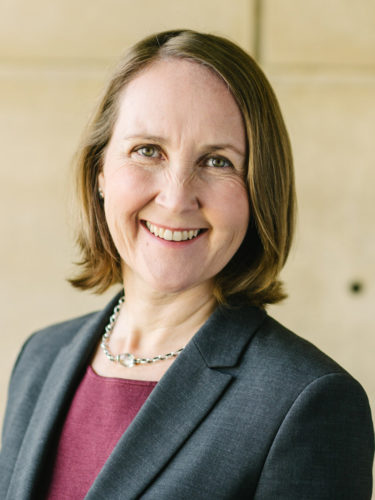From the Dean

(photo by Timothy Archibald)
It is easy in this day and age to be cynical about the legal profession. But what drew me to law—and what draws many of our students and no doubt many of you—is the idea that the rule of law is fundamental to human flourishing, that lawyers play an indispensable role in society in supporting the rule of law and helping solve society’s most vexing problems. This includes some of those we meet in this issue of the magazine: From Ninth Circuit Judge Carlos Bea, who ensures defendants the right to a fair and impartial trial, to law firm partner turned VC Carmen Chang, who has helped clients in China to understand the importance of good corporate governance—lawyers do often-invisible work in building a culture of compliance with norms and values embodied in the legal system in which they work.
One of my first jobs out of law school was for the United Nations at the International Criminal Tribunal for the Former Yugoslavia in The Hague, where I worked on trials involving genocide, crimes against humanity, and war crimes in Bosnia. It was the first international criminal tribunal since the Nuremberg trials following World War II. The international community, in adopting the 1949 Genocide Convention, had said never again. Yet mass atrocities continued.
One of the cases I worked on involved the massacre of 8,000 men and boys over a long weekend as part of the ethnic cleansing of the town of Srebrenica in Bosnia in 1995. Like any criminal trial, the day-to-day proceedings involved both legal minutia and sometimes emotional testimony. One mother talked about losing her husband and two sons in the massacre. In testimony that has stayed with me to this day she said, “How is it possible that a human being could do something like this, could destroy everything, could kill so many people? Just imagine this youngest boy I had, those little hands of his, how could they be dead? I imagine those hands picking strawberries, reading books, going to school, going on excursions.”
These questions grabbed me. Could law help make a difference?
In the past few years, as I have looked at the profound challenges facing society—including climate change, migration and refugee issues, questions of free speech and democracy in the age of Facebook and Google, and the role of new technologies like artificial intelligence—two things have become increasingly apparent: First, lawyers have a vital role to play in ensuring that our societies and legal systems adequately respond to these challenges and, second, that lawyers cannot do this alone or by working solely with other lawyers.
Instead, these challenges can only be adequately addressed by lawyers working with those from other disciplines—engineers, scientists, business people, economists, historians. Take artificial intelligence: We need to expose our students to the potential and the risks of new technologies—as we did in a policy practicum co-taught by professors Daniel Ho, David Freeman Engstrom, and Mariano-Florentino Cuéllar, which brought together engineering, computer science, and law students to explore how government agencies are increasingly turning to artificial intelligence and other technologies to inform their policy decisions (turn to page 6 for more).
At this critical juncture, as government and politics are increasingly polarized and dysfunctional, I believe research universities—like Stanford—have a profoundly important role to play in developing expertise from across many disciplines to create and disseminate knowledge and solutions, and to train the next generation to help society grapple with these problems.
I hope you enjoy this issue of the magazine as much as I have—and that you’ll read on.
